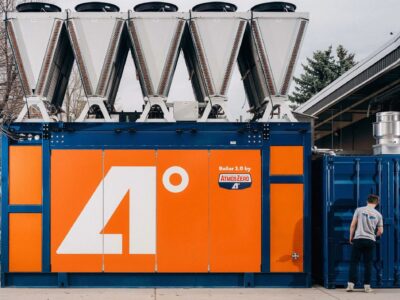Plant-based meat is becoming increasingly popular among American households. It has transformed from a niche vegan product to a common offering on restaurant menus, even fast- food chains around the country. However, supply chain issues have made it challenging to create and distribute big-name brands like Beyond Meat and Impossible Burger. There might be a new ingredient on the horizon for plant-based meat: kelp.
Understandably, many Americans are hesitant to try seaweed or kelp. We often associate seaweed with that unknown object that grazes your leg in the ocean. We see it washed ashore and drying out in the sun, perceiving it as nothing more than sea vegetation. However, Asian cultures have been consuming kelp for centuries, and odds are you’ve already tasted kelp in your lifetime, especially if you’re a fan of sushi. A few alternative cuisine groups in the U.S. and Europe are embarking on a mission to create plant-based meat from kelp.
In the U.S., one kelp-based meat alternative firm is partnering with a notable kelp cultivation nonprofit. AKUA, out of Brooklyn, NY, has been working tirelessly to produce snacks like kelp jerky and to plant and care for kelp farms around the country.
Founded by Courtney Boyd Myers in 2019, AKUA uses a combination of skinny kelp, sugar kelp, and water lentils, which are a high source of protein.
The company touts how kelp benefits the environment by getting rid of agricultural waste from the meat industry, the little-to-no carbon footprint from the cultivation of kelp, and kelp not needing chemical products to grow bountiful.
This combination of sea vegetation with flavors like olives, tomatoes, and black beans has earned AKUA’s kelp burger rave reviews from outlets like Bon Appetit. However, they are not alone in this venture.
A notable kelp-based restaurant is Dutch Weed Burger out of the Netherlands. The chefs make their kelp burger out of dried sugar kelp and soy chips combined to make a briny, roasted patty. Co-founder Mark Kulsdom says it takes aspects of familiar food with a new flavor. The Dutch Weed Burger is hoping to create a culture shift where all kinds of plants are embraced as edible choices to promote a more sustainable planet. Rather than letting abundant vegetation go to waste, Kulsdom hopes to make meat alternatives, and cooking with unorthodox ingredients will raise people’s awareness about how good kelp can taste.
GreenWave is one of the leaders in high-scale kelp farming and has partnered with AKUA to supply them with kelp for their foods. GreenWave specializes in kelp farming education and assistance. Through their Kelp Climate Fund, financial aid is given to ocean farmers for the proper growth and harvesting of kelp, and the results have been astounding. GreenWave estimated in 2021–22, they had offset around 14,000 pounds of carbon dioxide and planted around 90 acres of new kelp plants, stretching from Alaska to Rhode Island.
“Don’t grow things that swim away or that you have to feed. And as soon as you change that mindset of not growing salmon, tunas, things like that, it opens this whole world of regenerative ocean agriculture,” says founder Bren Smith. Regenerative kelp growth is pioneering this culinary innovation, and it could not have happened at a more critical moment.
While grocers and retailers are still feeling the effects of the supply chain shortages, there has been an increase in plant-based meat amongst American households. A study conducted by the Good Food Institute concluded that Americans are willing to try or embrace plant-based meats in full. The problem they face is peas and soybeans — the compounds used to create Beyond and Impossible Meats — are still facing supply chain issues.
Kelp is emerging as a viable alternative for plant-based meat ingredients because of its low environmental impact and how plentiful and easy it is to grow. As more kelp-based products enter the market and get tasted, the stigma around sea vegetation should start to dwindle. We can expect to see more kelp-based foods stocked in grocery stores soon.





